This Hydroponic Farm In Montreal Grows The 'Best Lettuce You'll Ever Taste' — Here's Their Secret
No soil, no problem. 🥬
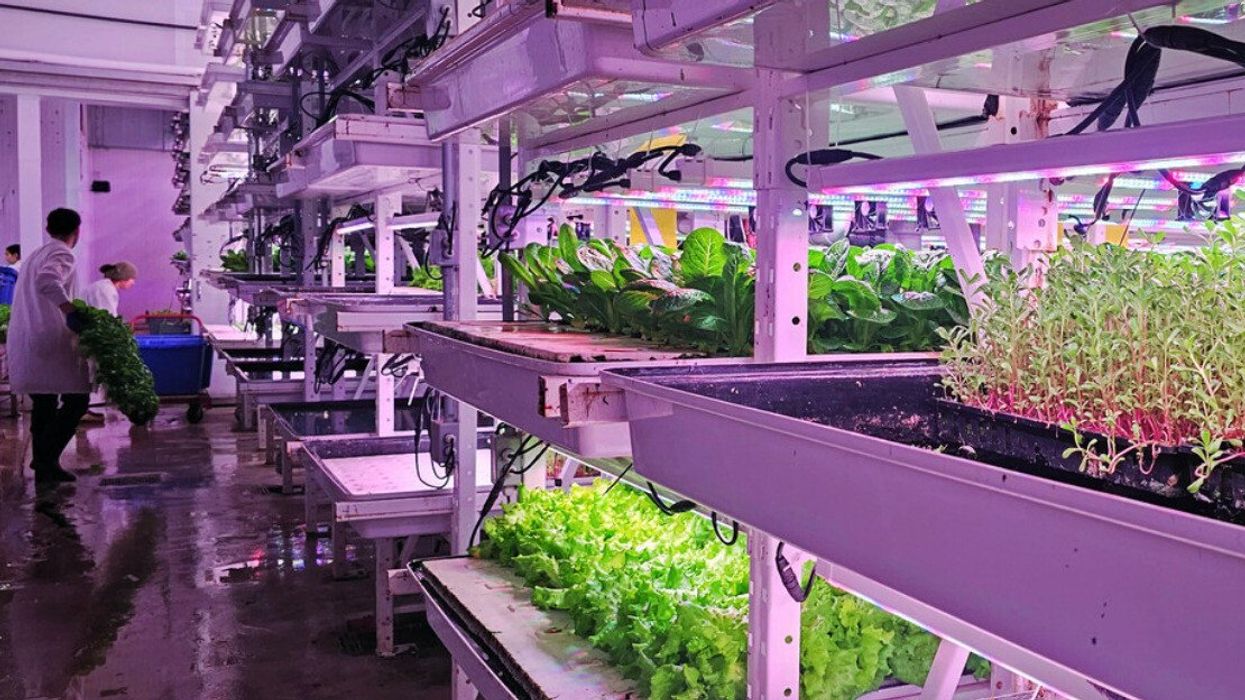
AquaVerti workers carry palettes of lettuce past the multilevel hydroponic system filled with sprouts.
A "greens" revolution is seeding in Montreal. The verdant uprising takes root daily in a 30,000-square-foot farm, where towers of lettuce, kale, and other leafy varieties sprout — although not from soil. AquaVerti is rewriting the rules of farming and yielding some of the tastiest lettuce to ever grace your salad bowl.
You might recognize the brand from the produce section of your go-to grocery store. AquaVerti's "Montreal Mix" is an affordable and surprisingly flavourful box of greens that will stay fresh way longer than imported legumes.
"We actually have a guarantee that if our lettuce doesn't last in your fridge for two weeks, you can call us for a refund. We'll also give you another lettuce," AquaVerti spokesperson Sophie Pilotte told MTL Blog. Not only do the Montreal-grown greens have little distance to travel from farm to point of sale, but they're usually harvested just 24 hours before they hit store shelves.
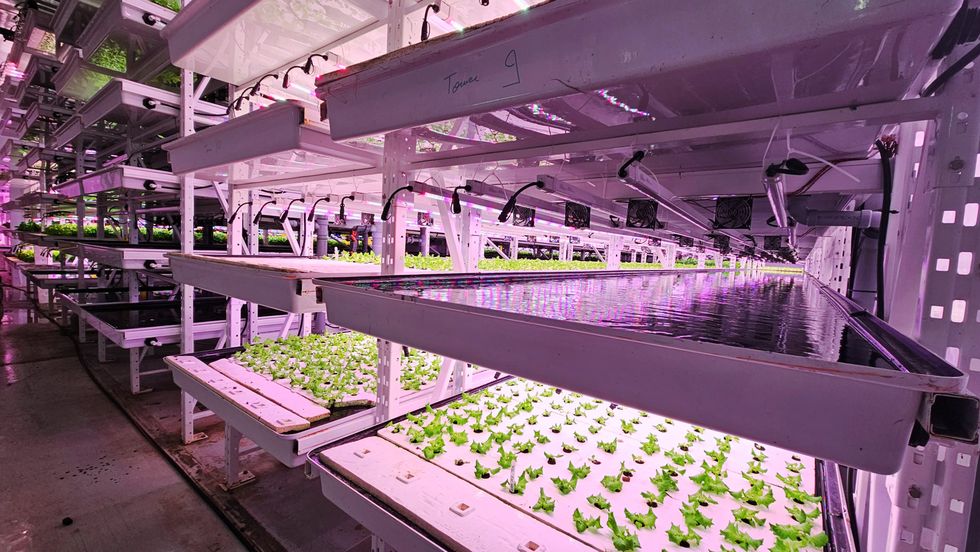
Aside from the freshness benchmark, AquaVerti also sets itself apart by growing plants using only H2O. "On this farm, soil is not our problem," said Pilotte. "We won't touch it."
Baby plants begin life in trays flooded with water. Once they've had their fill, the water drains away, and they're left to mature in an environment tuned to their unique needs.
"We put all of the nutrients, minerals and salt that the plants need in the water. Absolutely nothing else, other than filtered air, touches them. We never have any risk of contamination or disease because we don't have animals on the farm. Everything is hyper-clean," said Pilotte.
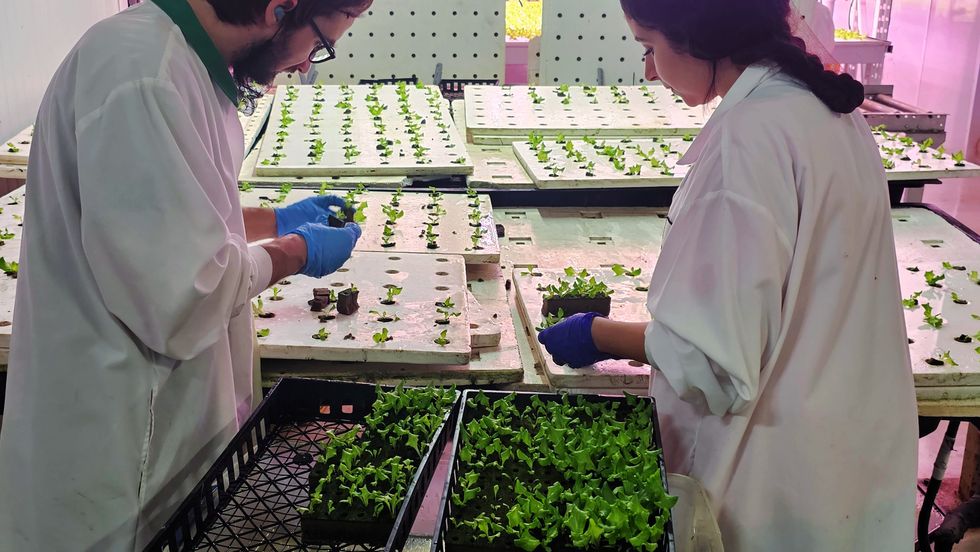
Unlike traditional single-level hydroponic systems, AquaVerti's multilevel beds dramatically amplify its productive capacity. "We're 132 times more efficient than an outdoor farm in this small space," shared Pilotte.
When asked about the driving force behind the farm's efficiency, she replied, "Control is key. We always say we can kind of play God here at the farm. Every single aspect of growth can be altered by us in some way. And it does get altered."
Every variable, from humidity and temperature to airflow and light, is meticulously regulated. The farm comprises three rooms, each showcasing different growing conditions. "There's one room that has different kinds of lights. This difference gives us completely different yields, tastes, textures, and appearances," said Pilotte.
Lettuce types, like Boston and Romaine, for instance, flourish under red-tinted light. "We maintain those products under that light. But kale didn't give us great yields in the same conditions so we decided on different lights," she said.
"A lot of people have never tasted kale like AquaVerti kale in their life," Pilotte added. The secret, as it turns out, lies in stressing the plants. High humidity and tough growing conditions force the plants to produce flavour-packed enzymes, resulting in a taste sensation.
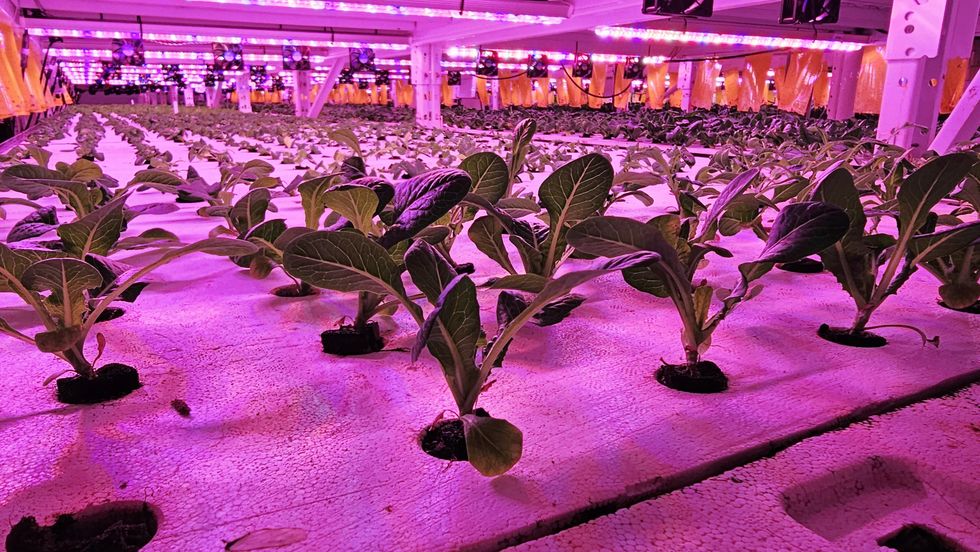
AquaVerti grows non-GMO produce, spanning over a dozen types of lettuce, kale, and even purslane. The latter is a lesser-known nutritional powerhouse, considered a weed by some, but prized for its high omega-3 content and lemony taste. High-quality harvests from AquaVerti have found a place of honour in the fattoush salad served at acclaimed Montreal restaurant Damas.
"It's really nice to introduce new flavors to Montreal, and Marché Adonis really wants to start selling our purslane in pots, the same way you can buy basil," said Pilotte.
The farm also prides itself on its environmentally friendly cultivation methods. They avoid pesticides, instead using yellow sticky cards to manage the occasional flying pests.
The usual challenges of farming, including changing seasons and weather patterns, are irrelevant at AquaVerti. "It's always summer here. We grow all year long. We never stop," said Pilotte. Even during the grueling Montreal winter or the stifling summer heat, the farm's internal climate remains unchanging, creating an oasis of warmth in the winter and a refreshing cool in the summer. "You can wear shorts inside," she said.
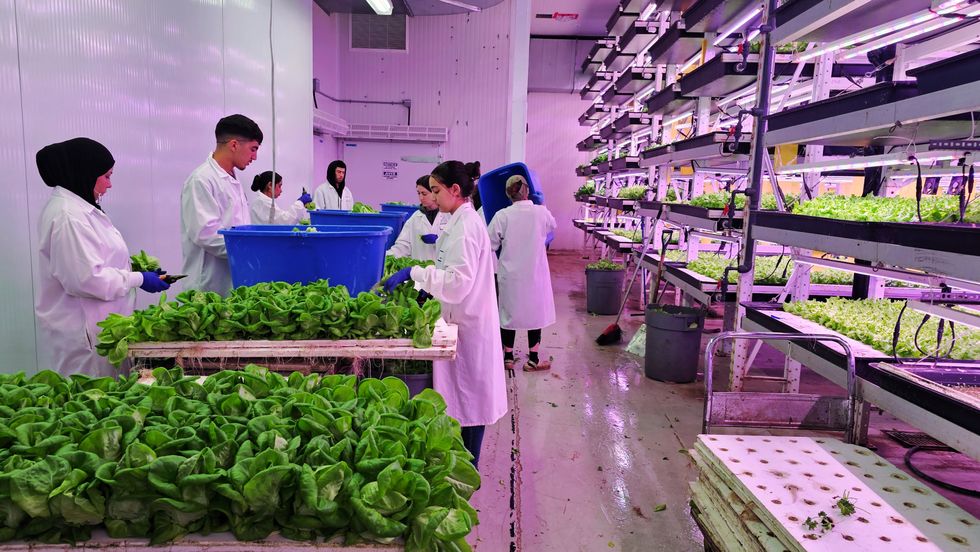
While the advanced technology and careful calibration behind AquaVerti's operation are undeniably impressive, the real triumph lies in their commitment to reducing waste and creating a closed-loop system that ensures nothing goes unused. Each head of lettuce uses approximately 2.2 litres of water in its entire lifecycle, including cleaning and packaging — a stark contrast to the 22 litres required for traditional soil-based farming.
"We just reintroduce it into the system again and again. Some of this water, in theory, has been here for three years — refiltered, of course," said Pilotte.
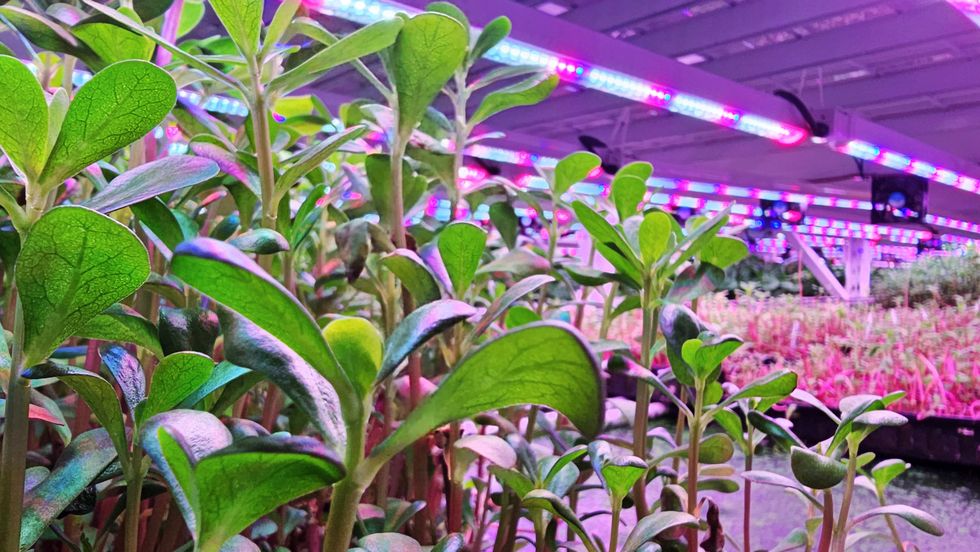
AquaVerti is a place of growth, both literal and metaphorical. The farm is in the process of transitioning to a coconut-based substrate, which will make every part of its process compostable. The goal is to have zero waste, a challenge that Pilotte and the team at AquaVerti are embracing with vigour.
"If we want to expand, which is what we're fundraising for right now, we need to have good practices," she said.
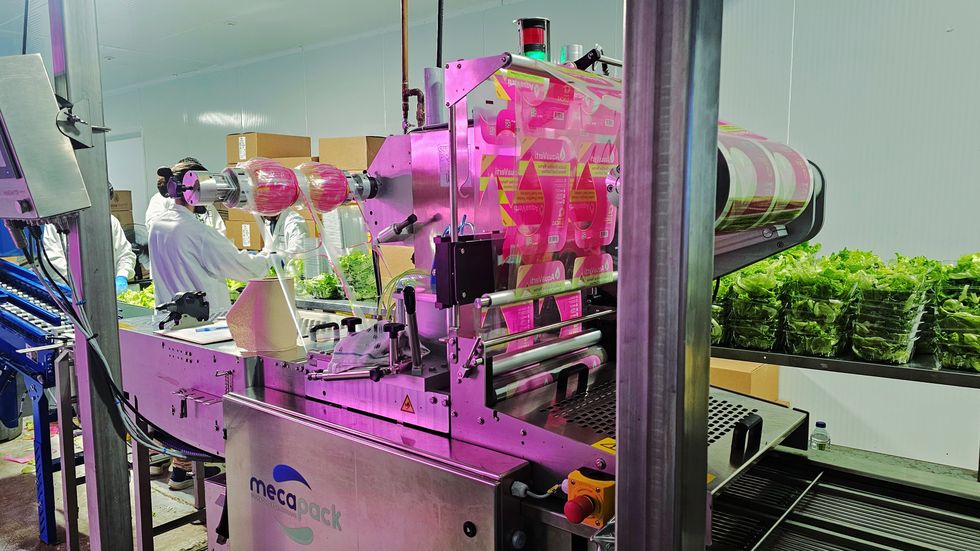
What started as a dream shared by co-founders Georges Aczam and Stephen Moss, who wanted to make a difference in the world has nurtured a subtle metamorphosis in the urban farming landscape of Montreal.
"We're almost pioneering this movement, you know. But we're not trying to hide our knowledge. We're actually trying to share it. Everyone's always welcome here," said Pilotte.
As the world faces an uncertain future marked by increasing urbanization and climate change, AquaVerti represents a growing movement to provide city dwellers with a sustainable, locally-sourced, and efficient alternative to traditional agriculture practices. The urban farm isn't just sowing seeds; it's offering a taste of the future.
- Montreal's Vegan Festival Is Back In September With Tastings, Demos & Cheap Admission ›
- Here's An Exclusive Look Inside Montreal's Only Legal Magic Mushroom Farm - MTL Blog ›
- Montreal's Botanical Garden is having a huge plant sale of colourful blooms and veggies - MTL Blog ›
- 7 Strawberry Picking Farms Near Montreal To Visit This Summer - MTL Blog ›
